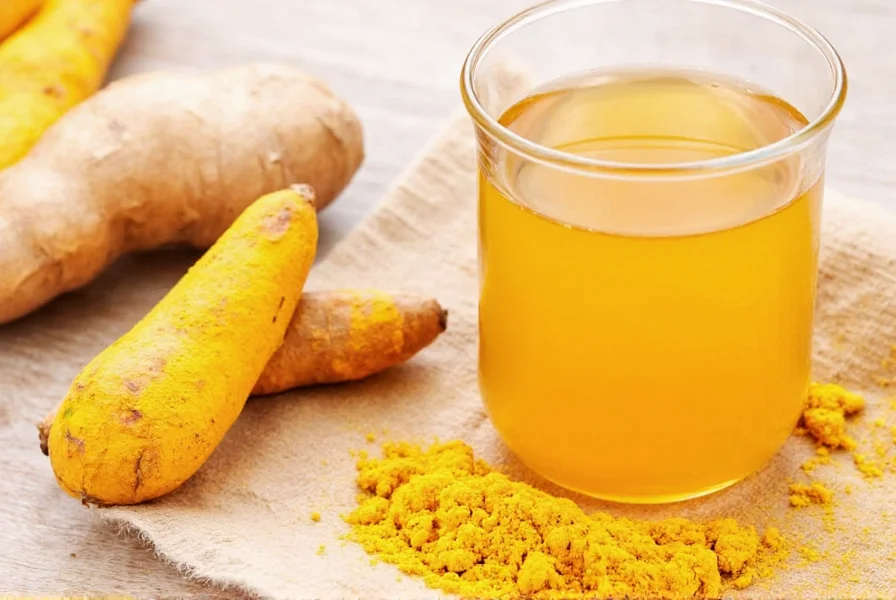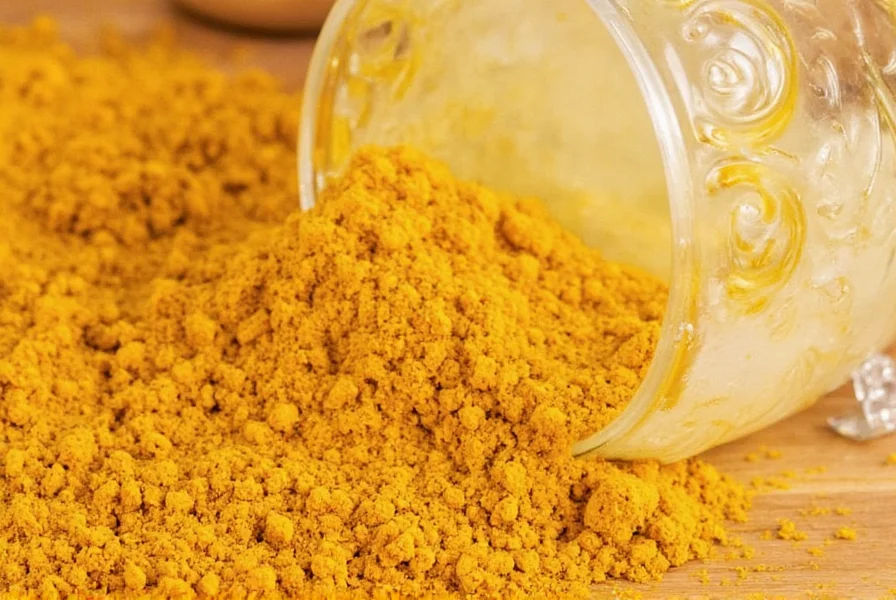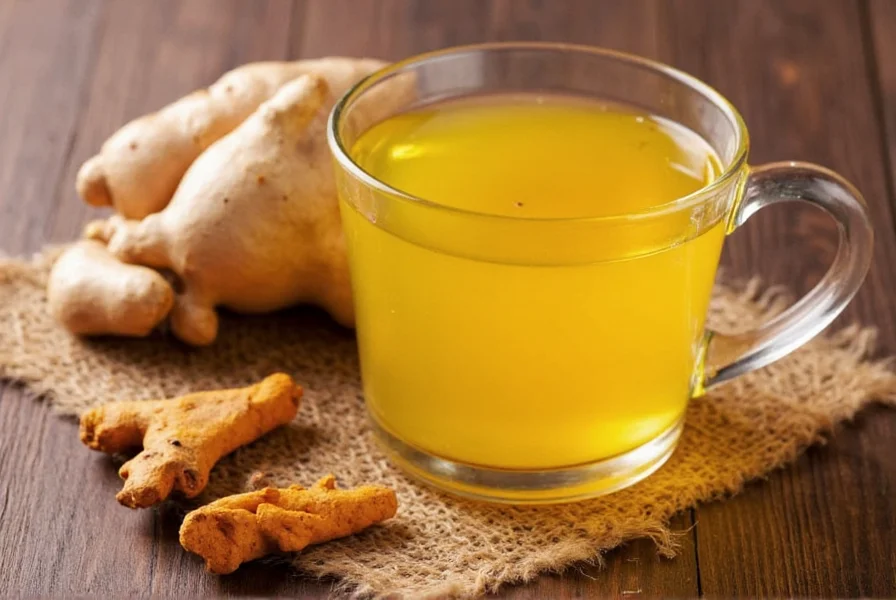For centuries, traditional medicine systems have utilized turmeric and ginger for their therapeutic properties. Modern science now provides insight into how this powerful tea combination works and its potential health applications. This comprehensive guide examines the research-backed benefits, optimal preparation methods, and important considerations for incorporating turmeric powder and ginger tea into your wellness routine.
The Science Behind Turmeric and Ginger
Turmeric contains curcumin, a polyphenol compound responsible for its vibrant yellow color and most health benefits. Ginger's primary active component is gingerol, which gives it its characteristic flavor and medicinal properties. When combined in tea form, these compounds work synergistically through multiple biological pathways.
Research published in the Journal of Medicinal Food demonstrates that curcumin has significant anti-inflammatory effects by inhibiting key inflammatory molecules like NF-kB. Meanwhile, studies in Molecular Nutrition & Food Research show gingerol modulates digestive enzymes and gut motility. The combination creates a complementary effect that neither ingredient provides alone.
Evidence-Based Health Benefits of Turmeric Ginger Tea
Understanding the health benefits of turmeric ginger tea requires examining scientific evidence rather than anecdotal claims. Current research supports several potential benefits:
| Benefit | Scientific Support | Recommended Consumption |
|---|---|---|
| Anti-inflammatory effects | Multiple studies show reduced CRP and IL-6 markers | 1-2 cups daily, preferably with black pepper |
| Digestive support | Clinical evidence for reduced nausea and improved motility | 30 minutes before meals |
| Antioxidant properties | ORAC testing shows high radical-scavenging capacity | Regular consumption throughout the day |
Turmeric ginger tea for inflammation management
Chronic inflammation underlies many modern health conditions. A 2022 meta-analysis in Nutrients found that curcumin supplementation significantly reduced inflammatory markers in 12 of 15 clinical trials. When preparing turmeric powder and ginger tea for inflammation, include a pinch of black pepper (containing piperine) which increases curcumin absorption by up to 2,000% according to research in Planta Medica.
Does turmeric ginger tea help with digestion?
Ginger has well-documented effects on gastrointestinal function. A randomized controlled trial published in European Review for Medical and Pharmacological Sciences demonstrated that ginger accelerated gastric emptying by 25% compared to placebo. The addition of turmeric provides complementary anti-spasmodic effects. For optimal digestive support, consume your tea 20-30 minutes before meals rather than after.
How to Make Authentic Turmeric Ginger Tea
Knowing how to make turmeric powder and ginger tea properly affects both flavor and therapeutic value. Many commercial preparations lack the necessary components for maximum benefit. Here's a science-backed preparation method:

Traditional Preparation Method
- Boil 2 cups of filtered water
- Add 1 teaspoon turmeric powder (or 1-inch fresh turmeric root)
- Add 1 teaspoon freshly grated ginger (or ½ teaspoon ginger powder)
- Add a pinch of black pepper (⅛ teaspoon)
- Simmer for 10-15 minutes (longer simmering increases extraction)
- Strain and add lemon juice (vitamin C enhances absorption)
- Optional: Add a small amount of healthy fat (coconut milk) for additional absorption
This preparation method maximizes the bioavailability of active compounds. Avoid adding dairy if concerned about curcumin binding, as some research suggests casein may reduce absorption.
Optimal Consumption Guidelines
Understanding the best time to drink turmeric ginger tea enhances its effectiveness. Research suggests:
- Morning consumption may support metabolic function throughout the day
- Before meals improves digestive enzyme production
- Avoid consumption within 2 hours of bedtime for some individuals (ginger may be stimulating)
- Consistent daily use yields better results than sporadic consumption
The turmeric ginger tea recipe for weight loss often circulates online, but evidence for direct weight loss effects remains limited. Some studies suggest potential metabolic benefits, but these should be viewed as complementary to overall healthy lifestyle practices rather than standalone solutions.
Safety Considerations and Potential Side Effects
While generally safe, turmeric ginger tea side effects can occur, especially with excessive consumption:
- Gastrointestinal discomfort at high doses (more than 4 cups daily)
- Potential blood thinning effects (caution for those on anticoagulants)
- Gallbladder contractions (avoid if you have gallstones)
- May lower blood sugar (monitor if diabetic)
The European Food Safety Authority considers up to 3 mg of curcumin per kilogram of body weight daily as safe. For most adults, this translates to no more than 2-3 cups of properly prepared tea daily. Consult your healthcare provider before regular consumption if you have medical conditions or take medications.
Homemade vs. Commercial Turmeric Ginger Tea
Many store-bought turmeric powder and ginger tea products contain insufficient active ingredients or unnecessary additives. When evaluating commercial options:
- Check for minimum 95% curcuminoids in turmeric content
- Look for black pepper or piperine extract for absorption
- Avoid products with excessive sweeteners or artificial flavors
- Prefer whole-leaf or high-quality powder formulations
Homemade preparation typically provides superior quality and customization. A 2023 analysis in Food Chemistry found that freshly prepared turmeric-ginger beverages contained 30-50% higher bioactive compound concentrations compared to commercial tea bags.

Conclusion
Turmeric powder and ginger tea represents a time-tested combination with growing scientific support for specific health applications. When prepared properly with attention to absorption-enhancing components, it offers a natural approach to supporting inflammation management and digestive health. As with any wellness practice, consistency and proper preparation yield the best results. Incorporate this tea as part of a balanced approach to wellness rather than expecting miraculous standalone effects.
How much turmeric ginger tea should I drink daily for health benefits?
Research suggests 1-2 cups daily provides optimal benefits without risk of side effects. Each cup should contain approximately 1 teaspoon turmeric powder and 1 teaspoon fresh ginger. Consuming more than 3 cups daily may cause gastrointestinal discomfort in some individuals.
Can I drink turmeric ginger tea on an empty stomach?
Yes, drinking turmeric ginger tea on an empty stomach can enhance absorption of active compounds and support morning digestion. However, those with sensitive stomachs may experience mild discomfort, so starting with a small amount (¼ cup) is recommended before increasing to a full cup.
How long does it take to see benefits from regular turmeric ginger tea consumption?
Most research indicates noticeable effects within 4-8 weeks of consistent daily consumption. Anti-inflammatory benefits may take 6-12 weeks for measurable changes in blood markers. Digestive benefits often appear more quickly, sometimes within days of regular consumption.
Does turmeric ginger tea interact with medications?
Turmeric may interact with blood thinners, diabetes medications, and certain chemotherapy drugs. Ginger can enhance effects of blood pressure medications. If taking prescription medications, consult your healthcare provider before regular consumption, especially if taking anticoagulants or managing blood sugar levels.











 浙公网安备
33010002000092号
浙公网安备
33010002000092号 浙B2-20120091-4
浙B2-20120091-4